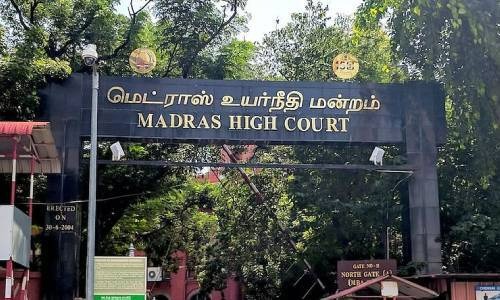
Case Title: Prasanna Gunasundari v. The Deputy Inspector General of Police and others
The Madras High Court recently stated that Governor of a State is the only person with the executive authority to consider a petition for mercy from any person convicted under any law to which the executive power of the State extends. Therefore, there is no legal authority for the Director General of Police (DGP) office to consider mercy petitions against orders passed in departmental action.
The court was considering a petition filed by a former female police constable who had received a compulsory retirement sentence for mishandling gold jewelry connected to a case. The Additional Director General of Police confirmed this in a statutory appeal. After that, the petitioner presented a Mercy Petition to the DGP. However, the ADGP who had heard the petitioner's case had since been elevated to the position of DGP. As a result, the petitioner's mercy petition was denied because the same person could not decide both the appeal and the mercy petition. She approached the High Court to protest this.
The Disciplinary Authority's procedure of conducting the departmental proceedings was not found to be inappropriate by the court even though the court expressed some concern about the way the authorities were considering mercy petitions that were illegal and out of bounds. The court noted that the exercise of jurisdiction by authorities over their jurisdiction would result in a colourable exercise of power. In this case, court held that -
"The power of entertaining the mercy petition is conferred only on the Constitutional Authority, namely, the 'Governor of the State under Article 161 of the Constitution of India...Such a power conferred to the Governor of a State under Article 161 of the Constitution of India, cannot be exercised by any other Executive Authority in the State. Therefore, entertaining a mercy petition by the Office of the Director General of Police is in violation of the Indian Constitution and no such power has been conferred on any of the Authority, Justice SM Subramaniam observed."
The court added that such exercise may cause an anomalous situation in administrative affairs and further cause ill effects to the administrative discipline, which is a constitutional mandate. The administrative discipline in the matter of deciding the issues either as a Punishing Authority, Appellate Authority, or Review Authority was to be maintained carefully by all the Authorities concerned, it said. As a result, the court ordered the government to notify and take appropriate action against authorities who had improperly or excessively exercised their authority.
Regarding the current case, the court decided that the Petitioner was free to contact the Revisional Authority in manner specified by law and instructed the Competent Authority to make a merits-based decision.

